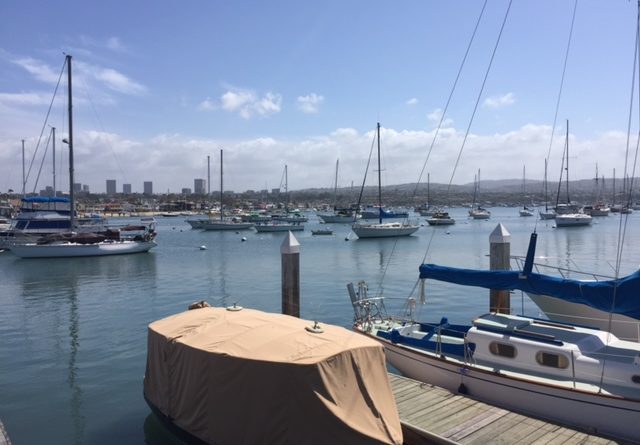Newport Beach Harbor Commission sends revised Marine Activities Permits section of Title 17 to council
The City Council approved most revisions to Title 17, the Harbor Code, in January, but the Harbor Commission requested additional time to refine section dealing with Marine Activities Permits.
NEWPORT BEACH—The Newport Beach Harbor Commission, at its Oct. 14 meeting, approved sending revisions to the Marine Activities Permits (MAPs) section of Title 17 to the City Council for review.
A Harbor Commission ad hoc committee has been working on revisions to section 17.10 Marine Activities Permits over the last year. After several public meetings, the proposed changes were presented to the entire Commission on Oct. 14. In addition to general language clarification, major changes included an expansion of the definition of what a commercial activity is, narrowing what activities would be exempt from obtaining a MAP and stricter penalties.
Currently commercial fishing vessels, six-pack and 12-pack charters, businesses operating pursuant to a franchise or lease, any permittee under the Army Corps, special events or commercial film and private marinas are exempt from MAPs.
Under the proposed changes, exemptions from obtaining a MAP would only apply to the Army Corps of Engineers, those with a special event or commercial film permit from the city and private marinas operating with a commercial pier permit, lease or franchise issued by the city. However, current exempt operators would continue to be exempt provided they meet certain basic requirements in the MAP code. If exempt businesses change their operations, they would need to obtain a MAP.
According to a staff report, the city currently has no enforcement mechanism to enforce rules on exempt businesses and the Harbor Department has received some complaints.
“The impacts of not having a marine activities permit is starting to show,” Newport Beach Assistant City Attorney Yolanda Summerhill said at the Oct. 14 Harbor Commission meeting.
According to a staff report, reducing exemptions will allow the city to verify insurance requirements, business license, appropriate sanitation devices, noise limitations, appropriate trash removal, and more.
“By revising this code for MAPs we will be opening the door to capturing a lot of non-compliant operators and I think that is the intent of this section,” said Commissioner Don Yahn.
Another proposed change would increase the fine amounts for Marine Activities Permit citations, which currently range from $100 to $500. According to a staff report, these fines do not provide an incentive for permit holders to change their behavior and the recommended changes would increase these fines to $1,000 to up to $3,000.
Under the proposed changes, there would also be an enhanced process for the suspension or revocation of a MAP.
Other proposed changes included requiring all businesses in the harbor to provide adequate insurance naming the city as an additional insured, requiring loading and unloading to occur at a private dock and limiting outdoor lighting.
Commissioners raised some questions about the changes and recognized more modifications could be necessary in the future, but ultimately decided there was enough substance to push it forward.
“In our objectives we realize that Title 17 is a living document that’s probably going to need to be addressed on a regular basis and it’s probably one of those things we’re going to look at every year,” Commissioner William Kenney said.
In addition to the revisions, the commission voted to approve creating four different types of MAPs more specifically tailored to meet the needs of the businesses operating on the water. The four types are Charter Services, Marine Serving Services, Human Powered Vessels and Wind, Electric and Fuel Powered Vessels. According to a staff report, staff will continue to refine the permits administratively prior to final implementation.
“We looked at the permit that was being used by the Harbor Department, it was a one permit fits all type of situation, which we didn’t think worked well and so with staff, the ad hoc committee created four separate permits depending on the type of businesses,” Kenney said.


